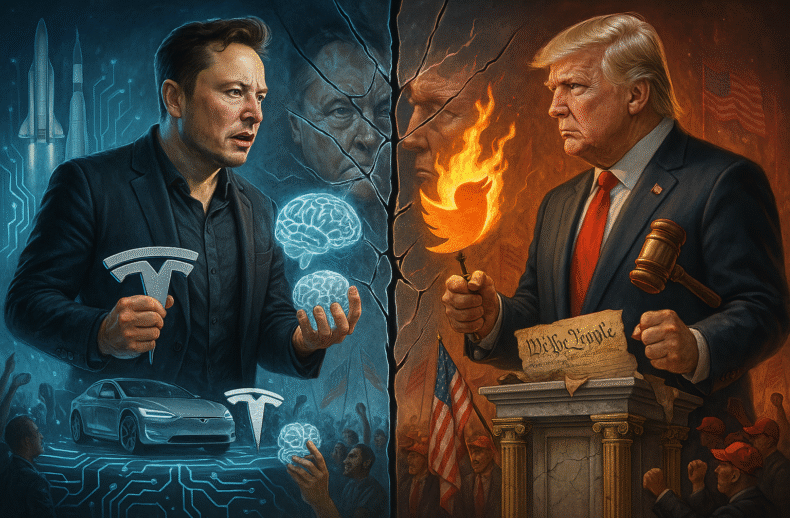The feud between Elon Musk and Donald Trump is more than a clash of personalities—it’s a structural collision of two recognition loops. Musk, driven by the need to be seen as a genius innovator, may sacrifice business interests to defend his identity. Trump, addicted to domination and loyalty, seeks total submission from rivals. This essay explores how their conflicting psychological structures fuel an escalating cycle of emotional escalation and performative destruction—with no off-ramp in sight.













